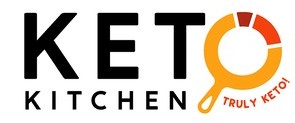Ketogenic diets, along with normal low-carb diets, are highly effective for weight loss.
As dozens of weight loss studies have shown, you will likely experience both short- and long-term weight loss when switching to a ketogenic diet.
Fast weight loss can occur during the first week. While some people believe this to be fat loss, it’s primarily stored carbs and water being used up.
After the initial rapid drop in water weight, you should continue to lose body fat consistently as long as you stick to the diet and remain in a calorie deficit.
09 – Increased Ketones in the Blood ( keto diet )
One of the hallmarks of a ketogenic diet is a reduction in blood sugar levels and an increase in ketones.
As you progress further into a ketogenic diet, you will start to burn fat and ketones as the main fuel sources.
The most reliable and accurate method of measuring ketosis is to measure your blood ketone levels using a specialized meter.
It measures your ketone levels by calculating the amount of beta-hydroxybutyrate (BHB) in your blood.
This is one of the primary ketones present in the bloodstream.
According to some experts on the ketogenic diet, nutritional ketosis is defined as blood ketones ranging from 0.5–3.0 mmol/L.
Measuring ketones in your blood is the most accurate way of testing and is used in most research studies. However, the main downside is that it requires a small pinprick to draw blood from your finger.
What’s more, a test kit costs around $30–$40, plus an additional $5 per test. For this reason, most people will just perform one test per week or every other week.
08 – Increased Ketones in the Breath or Urine
Another way to measure blood ketone levels is a breath analyzer.
It monitors acetone, one of the three main ketones present in your blood during ketosis.
This gives you an idea of your body’s ketone levels since more acetone leaves the body when you are in nutritional ketosis.
The use of acetone breath analyzers has been shown to be fairly accurate, though less accurate than the blood monitor method.
Another good technique is to measure the presence of ketones in your urine on a daily basis with special indicator strips.
These also measure ketone excretion through the urine and can be a quick and cheap method to assess your ketone levels each day. However, they’re not considered very reliable.




Leave a Comment